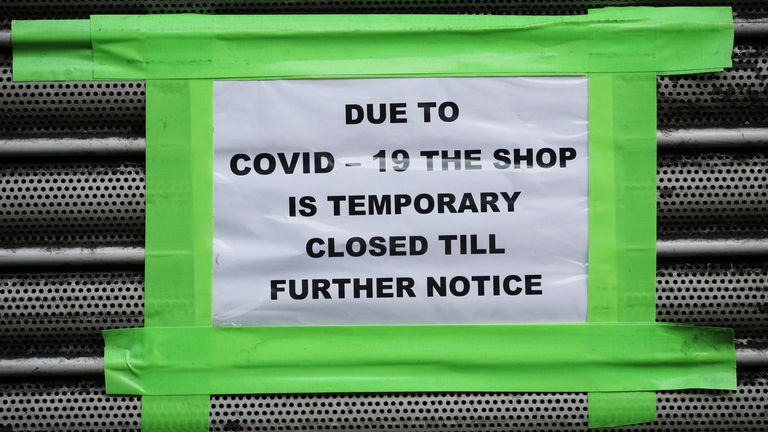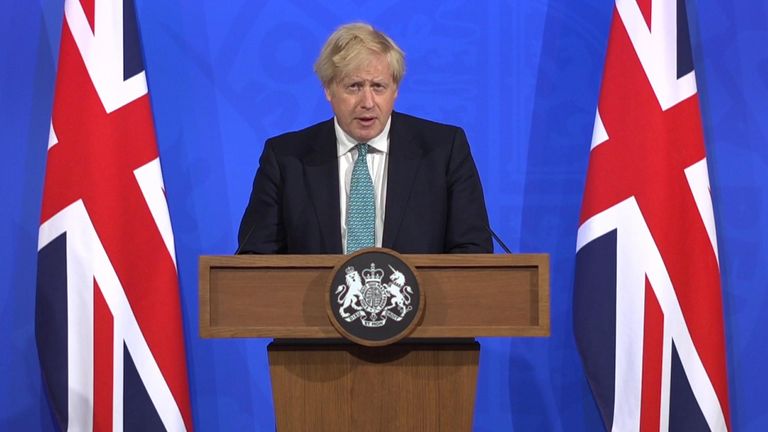COVID-19: Indian coronavirus variant could cause ‘serious disruption’ to easing of lockdown on 21 June
The Indian coronavirus variant could cause “serious disruption” to the planned roadmap out of lockdown, the prime minister has said.
Boris Johnson said the Indian coronavirus variant could cause “serious disruption” to the next stage of lockdown easing on 21 June – although Monday’s easing will go ahead.
But the prime minister said plans to accelerate vaccinations for priority groups would not affect the scheduled easing of lockdown in England from Monday.
Professor Chris Whitty, the chief medical officer for England, said: “This is more transmissible than the B.1.1.7 (Kent variant) and we expect over time this variant will overtake and come to dominate in the UK in the way that B.1.1.7 took over and other variants have taken over prior to that.”
Mr Johnson said: “I have to level with you that this new variant could pose a serious disruption to our progress and could make it more difficult to move to step four in June.”
But this was caveated on the how fast the virus spreads – with the prime minister stating: “we just need a bit more time to see how that pans out.”
“Some hard choices” may have to be made if it is more transmissible, he also said.
However, he did say there was “no evidence” to suggest the vaccines currently in use would be less effective against the B.1.617.2 strain.
He added: “Now, the question in practical terms, over the next two to three weeks, is ‘Is this somewhat more transmissible? than [the Kent variant], or is this a lot more transmissible?’
“And that will have implications for the long term prospects of this epidemic.”
Government documents show that the Scientific Pandemic Influenza Group on Modelling believe that B.1.617.2 has a transmission advantage of “more than 50%” over B.1.1.7 – although it is not certain this will be the same on a large scale.
Both Prof Whitty and Mr Johnson praised people who had already received their vaccine – and encouraged eligible people to get theirs when offered.
The prime minister added that the vaccine has saved an estimated 12,000 lives according to Public Health England (PHE).
He said: “I believe we should trust in our vaccines to protect the public whilst monitoring the situation as it develops very closely.
“Because the race between our vaccination programme and the virus may be about to become a great deal tighter.”
It comes as four people in the UK died with the Indian variant of COVID-19 – the first known domestic deaths from the new variant of the virus.
The four deaths from the strain of the virus, now designated a “variant of concern”, took place between 5 May and 12 May.
PHE said on Thursday there had been 1,313 cases in England of the Indian variant in a week, more than double the previous week’s figure, along with the four confirmed deaths.
Britain put India on a travel “red list” in April, meaning all arrivals from India – now in the throes of the world’s worst wave of coronavirus – would have to pay to quarantine in a government-approved hotel for 10 days.
The variant is thought to be spreading in certain areas of the UK, including Bolton and Blackburn, but since overall case numbers remain low, broader risk levels remain lower than they were for much of the winter.
Early evidence also provides tentative signs the new variant is not resistant to the vaccines.
Source: Read Full Article




